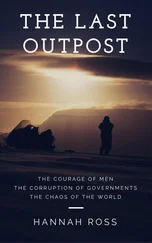Apart from the fact that bureaucracy is essentially anonymous, any relentless activity allows responsibility to evaporate. There’s an English idiom, “Stop and think.” Nobody can think unless they stop. If you force someone into remorseless activity, or they allow themselves to be forced into it, it’ll always be the same story, right? You’ll always find that an awareness of responsibility can’t develop. It can only develop in the moment when a person reflects—not on himself, but on what he’s doing.
FEST:Let’s turn for a moment to some of the legal consequences that arise from this whole complex, especially the question that’s linked with what we’ve just been talking about: Does the Eichmann type still belong to the traditional concept of the murderer? Isn’t he much more of a function in a murderous apparatus than a murderer? And does the partial responsibility he held justify the sense of total guilt?
ARENDT:We’ve already mentioned the murderer without a motive, I mean without the criminal motives we’re familiar with: passion, self-interest… Or the perpetrator who commits a crime out of conviction—an intermediate figure. All well and good! So in this sense the concepts we’ve inherited give us no handle. I’d say that this way of killing, from one’s desk or in masses… That is, of course, an incomparably more fearsome type of person than any ordinary murderer, since he no longer has any relationship with his victim at all. He really does kill people as if they were flies.
Partial responsibility was, of course, never a ground for partial guilt. Eichmann wasn’t given the job of actually killing, since he wasn’t suited for it. But he was part of the killing process! It’s not important who actually does this or that. What I mean is… when I say “But he’s not a typical murderer,” I don’t mean that he’s any better. What I mean is that he is infinitely worse, even though he has no actual “criminal instincts” as we call them. He was dragged into it all. But I can imagine murderers whom I might find, if I may say so, much more likeable than Herr Eichmann.
FEST:The court in Jerusalem also gave a conclusive answer to this question when it stated that in this case, it wasn’t just a mass crime with regard to the victims that was at stake, but also one with regard to the perpetrators. Perhaps at this point I can quote: “Being near to or far away from… the man who actually kills the victim [can] have no influence on the extent of the responsibility… Rather, the degree of responsibility increases as we draw further away from the man who uses the fatal instrument with his own hands.” [m] See Eichmann in Jerusalem (New York: Viking Penguin, 1963), 247.
ARENDT:Yes, quite true. I’ve quoted the same words myself. They come from the closing judgment. I entirely agree.
FEST:But the question is whether the legal norms in place can still grasp the nature of responsibility in this case. Would you say so?
ARENDT:Legal textbooks don’t prepare us for administrative mass murder, and nothing prepares us for this type of perpetrator. So can we still exercise justice? Not in accordance with the legal textbooks, as it were, but de facto? In fact, the judges—though they struggle with might and main to deny it—always passed judgment without any hindrance. […]
Justice leads to two things. First, it should restore the order that has been disturbed. This is a process of healing that can only succeed if the ones who have disturbed order, the people we’re talking about, are condemned. And second, in my view, is what affects us Jews… There’s a quotation from Grotius that one of the judges used, but which they didn’t pay much attention to, alas: he said that it is part of the honor and dignity of the person harmed or wounded that the perpetrator be punished. This has nothing to do with the suffering endured, it has nothing to do with putting something right. It’s really a question of honor and dignity. Look, for us Jews it’s a crucial question, when we’re in Germany. If the German people think they can carry on living quite undisturbed with the murderers in their midst, this goes against the honor and dignity of the Jewish person.
FEST:Let’s return to your book, Frau Arendt. In it, you referred to the way that the Eichmann trial laid bare the total nature of the moral collapse at the heart of Europe, among the persecutors and the persecuted alike, and in every country. Does the reaction to your book—a reaction that consisted on the one hand of denying this collapse, and on the other of making a confession of total guilt—indicate precisely what you were trying to prove?
ARENDT:Well, yes, this reaction to my book was for me… it was, of course, a test case—but after the event, not in the sense that I had expected it. Let me give you an example, one that I experienced several times… This book was read in manuscript by a very great number of people (which is unusual for me), and of those people who read the book in manuscript, at least fifty percent, probably many more, were Jews. Not a single one of them voiced the reaction that came subsequently—they didn’t even hint at it! In fact, these include, of course, people who are friends of mine and whom I know well. And one of them, for example, with this book… not just one, but several Jews read the book in manuscript and were really enthusiastic, right? Then the campaign started up, and they completely forgot that they’d already read the book in manuscript. If you want to understand this phenomenon better—you know, this is yet another phenomenon—then you really must read The Golden Fruits by Nathalie Sarraute; she depicted it as a comedy. And it is indeed a comedy, it’s the comedy of intellectual society, isn’t it? The way these opinions swing this way and that, influenced of course by… And many more people are subject to these influences than is generally realized. Aren’t they? And this has absolutely nothing to do with intelligence. A person can be very intelligent and yet behave like that.
FEST:You mentioned the campaign. There are many reasons behind the resistance to the connections you drew in your book, of course, and some of them—it has to be said—deserve to be treated with respect. This raises the question: Should we tell the truth, even when we come into conflict with certain legitimate interests on the one hand, and people’s feelings on the other?
ARENDT:Look, here you’re touching on the only question in the whole controversy that is actually of interest to me.
I don’t think that I damaged anyone’s legitimate—let me emphasize legitimate! —interests. But let’s assume that this is a controversial issue and that I did actually damage them. Should I have done so? Well, I think that such is the historians’ task, as well as the task of people who live at that time and are independent—there are such people, and they need to be guardians of factual truths. What happens when these guardians are driven out by society, or driven into a corner or put up against a wall by the state—we’ve seen this happen in the writing of history, for example in Russia, where a new history of Russia comes out every five years. Does the state or society, with their legitimate interests that may come into conflict with the truth, still have an interest—in principle—with these guardians of factual truth? In this case I’d say yes. What then happens is of course that a whole series of apologias are brought out and put onto the market just to cover up the two or three truths that are actually quite marginal to this book. It won’t succeed, as something of this kind never does.
Читать дальше












